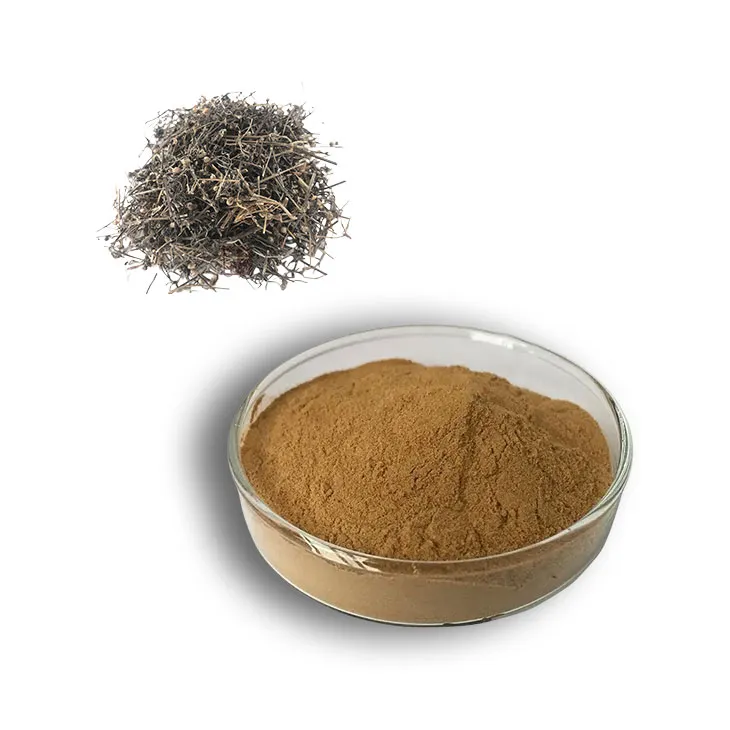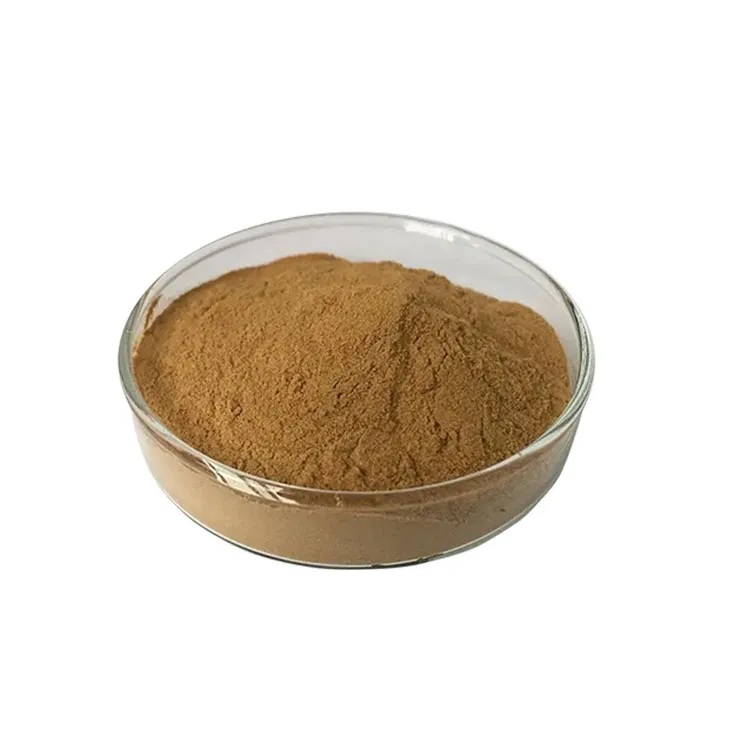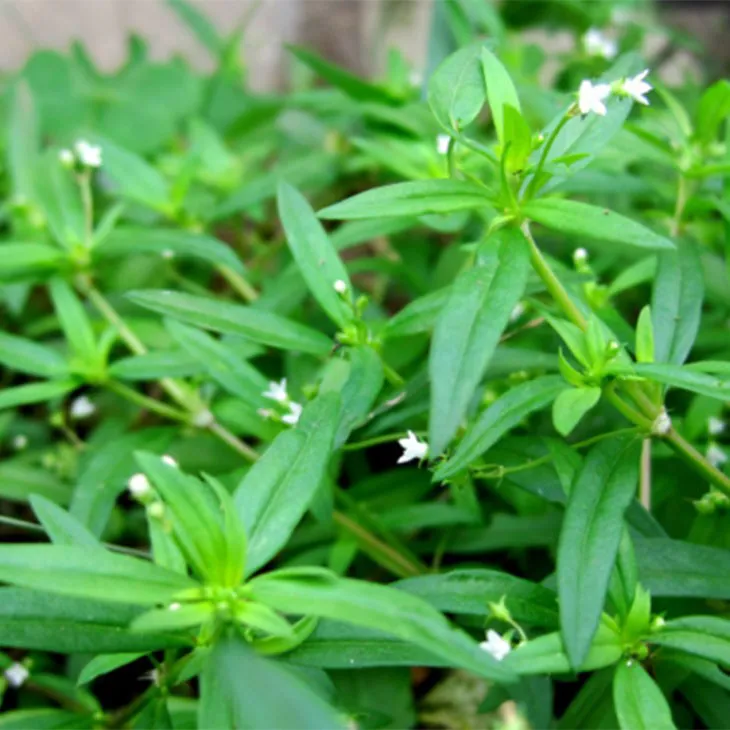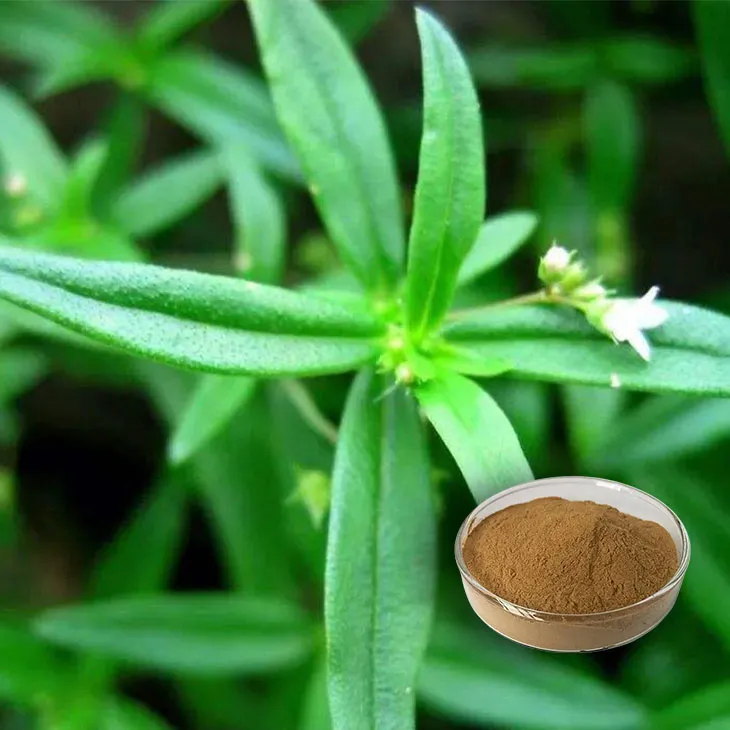- 0086-571-85302990
- sales@greenskybio.com
Use Hedyotis diffusa extract? Make sure you source from sustainable suppliers!
2024-12-20

1. Introduction
The use of Hedyotis Diffusa Extract has been increasing steadily in recent years. This extract, derived from the Hedyotis diffusa plant, has shown potential in various applications, including in traditional medicine and the cosmetic industry. However, as the demand for this extract grows, it is crucial to consider the source of the extract. Sourcing from sustainable suppliers is not just an ethical choice but also has far - reaching implications for health, the environment, and the economy.

2. The Importance of Sustainable Suppliers
2.1 Maintaining Ecological Balance
The Hedyotis diffusa plant is native to certain regions, and its growth is closely tied to the local ecosystem. Sustainable suppliers understand the importance of protecting the natural habitats where the plant grows. They ensure that the harvesting of the plant is done in a way that does not disrupt the ecological balance. For example, they may limit the amount of the plant that is harvested in a particular area to allow for natural regeneration. If the plant is over - harvested, it can lead to a decline in the population of other species that depend on it for food or shelter. This can have a domino effect on the entire ecosystem, disrupting the delicate balance of nature.
2.2 Protecting the Rights and Livelihoods of Local Farmers and Collectors
- Sustainable suppliers work closely with local farmers and collectors. They ensure that these individuals are fairly compensated for their efforts in growing and harvesting the Hedyotis diffusa plant.
- By providing a stable market and fair prices, sustainable suppliers help to improve the economic situation of local communities. This, in turn, can contribute to the overall development of the region. For example, the income generated from the sale of the plant can be used to fund local infrastructure projects or educational initiatives.
- Moreover, sustainable suppliers often provide training and support to local farmers and collectors. This can include teaching them more sustainable harvesting methods, which not only protects the plant but also ensures its long - term availability. It can also involve providing information on quality control, which helps to improve the value of the product they are selling.
2.3 Guaranteeing the Purity and Potency of the Extract
- Sustainable suppliers are more likely to follow strict quality control measures. They ensure that the Hedyotis diffusa plants are harvested at the right time and processed properly to maintain the purity and potency of the extract.
- These suppliers often have their own testing facilities or work with reliable third - party labs to verify the quality of the extract. This is important because the effectiveness of the extract in various applications, such as in medicine or cosmetics, depends on its purity and potency. If the extract is contaminated or of low quality, it may not produce the desired results or could even be harmful.

3. The Impact on Health
3.1 Ensuring Safe and Effective Medicinal Use
When used in traditional medicine, Hedyotis Diffusa Extract is believed to have certain health - promoting properties. However, if the extract is sourced from non - sustainable suppliers, there is a risk of contamination or adulteration. Sustainable suppliers take steps to ensure that the extract is pure and free from harmful substances, which is crucial for its safe and effective use in medicinal applications. For example, if the plant is grown in polluted soil or processed in unhygienic conditions, it can lead to the presence of heavy metals or other toxins in the extract. By sourcing from sustainable suppliers, consumers can have more confidence in the quality of the extract and its potential health benefits.
3.2 Avoiding Allergic Reactions and Other Adverse Effects
- The quality of the Hedyotis Diffusa Extract can also affect the likelihood of allergic reactions. If the extract is not properly sourced or processed, it may contain allergens that can cause adverse reactions in some individuals.
- Sustainable suppliers are more likely to have proper identification and handling procedures for the plant. This can help to minimize the risk of including allergenic components in the extract. By choosing a sustainable source, consumers can reduce their risk of experiencing allergic reactions or other adverse effects when using products containing the extract.

4. The Impact on the Environment
4.1 Conservation of Biodiversity
As mentioned earlier, the Hedyotis diffusa plant is an important part of the ecosystem. Sustainable harvesting practices promoted by sustainable suppliers help to conserve biodiversity. When the plant is harvested in a sustainable manner, it allows other species in the ecosystem to thrive. For example, birds and insects that rely on the plant for food or nesting can continue to do so without disruption. This, in turn, helps to maintain the overall biodiversity of the area, which is essential for the long - term health of the planet.
4.2 Reducing the Carbon Footprint
- Sustainable suppliers often have more environmentally - friendly practices in place. For example, they may use renewable energy sources in their processing facilities or have more efficient transportation methods to reduce their carbon footprint.
- By reducing the carbon footprint associated with the production and distribution of Hedyotis diffusa extract, these suppliers contribute to the global effort to combat climate change. This is not only beneficial for the environment but also for future generations who will inherit the planet.

5. The Impact on the Economy
5.1 Long - Term Availability and Market Stability
- When suppliers are sustainable, they ensure the long - term availability of the Hedyotis diffusa plant. This is important for the market stability of products containing the extract. If the plant becomes scarce due to over - harvesting or unsustainable practices, it can lead to price fluctuations and shortages in the market.
- By maintaining a stable supply, sustainable suppliers help businesses that rely on the extract to plan their production and marketing strategies more effectively. This, in turn, can contribute to the overall economic stability of the industry.
5.2 Promoting Local and Global Economic Growth
- As mentioned earlier, sustainable suppliers support local farmers and collectors, which helps to promote local economic growth. The income generated from the sale of the Hedyotis diffusa plant can have a multiplier effect in the local economy, creating jobs and stimulating economic activity.
- On a global scale, the sustainable sourcing of the extract can also contribute to economic growth. As more consumers demand products sourced from sustainable suppliers, it encourages the growth of the sustainable products market. This can lead to increased investment in sustainable production methods and the development of new, more sustainable products.
6. How to Identify a Sustainable Supplier
6.1 Certification and Standards
- One way to identify a sustainable supplier is to look for relevant certifications. For example, there may be certifications specific to the sustainable harvesting of medicinal plants. These certifications indicate that the supplier has met certain standards in terms of environmental protection, fair trade, and quality control.
- Some well - known international standards and certifications can also be used as a guide. For example, Fairtrade certification ensures that farmers are fairly compensated, and organic certifications can indicate that the plant has been grown without the use of harmful pesticides or fertilizers.
6.2 Transparency in the Supply Chain
- A sustainable supplier should be transparent about their supply chain. They should be able to provide information on where the Hedyotis diffusa plants are sourced from, how they are harvested, and how the extract is processed.
- Transparency allows consumers and businesses to make informed decisions. It also helps to prevent issues such as illegal harvesting or unethical labor practices in the supply chain.
6.3 Reputation and Track Record
- Researching the reputation and track record of a supplier is also important. Look for reviews or testimonials from other customers. A supplier with a good reputation is more likely to be sustainable.
- You can also check if the supplier has been involved in any environmental or social initiatives. This can be an indication of their commitment to sustainability.
7. Conclusion
In conclusion, the use of Hedyotis diffusa extract is becoming more widespread, but it is essential to source it from sustainable suppliers. Sustainable suppliers play a crucial role in maintaining ecological balance, protecting the rights and livelihoods of local communities, and guaranteeing the purity and potency of the extract. The choice of a sustainable source has far - reaching consequences for health, the environment, and the economy. By being aware of the importance of sustainable sourcing and knowing how to identify sustainable suppliers, consumers and businesses can make more responsible decisions that will benefit all parties involved in the long run.
FAQ:
What is Hedyotis diffusa extract?
Hedyotis diffusa extract is a substance obtained from the Hedyotis diffusa plant. It is often used in traditional medicine due to its potential health - promoting properties.
Why is it important to source from sustainable suppliers?
Sourcing from sustainable suppliers is crucial for several reasons. Firstly, it helps in maintaining the ecological balance of the areas where the Hedyotis diffusa grows. Unsustainable harvesting can lead to the depletion of the plant and damage to its natural habitat. Secondly, it protects the rights and livelihoods of local farmers and collectors. Sustainable practices ensure they can continue to earn a living in the long - term. Finally, sustainable suppliers are more likely to guarantee the purity and potency of the extract.
How can one identify a sustainable supplier?
To identify a sustainable supplier, one can look for certain certifications such as organic certifications which often have requirements related to sustainable farming practices. Another aspect is to research the supplier's reputation. Check if they have a history of following ethical and sustainable business practices. Additionally, a sustainable supplier should be able to provide information about their sourcing methods, such as whether they follow proper harvesting seasons and ensure the regeneration of the plant in its natural habitat.
What are the potential risks of using extract from non - sustainable sources?
The potential risks of using extract from non - sustainable sources are numerous. From an environmental perspective, it can contribute to the endangerment of the Hedyotis diffusa species and disrupt the local ecosystem. In terms of the quality of the extract, non - sustainable sources may not follow proper handling and processing procedures, leading to a lower - quality product with potential contaminants. Also, it can harm the local economy as it may not support the long - term viability of local farmers and collectors.
Does sustainable sourcing affect the cost of Hedyotis diffusa extract?
While it is possible that sustainable sourcing may initially seem to increase the cost due to more ethical and environmentally - friendly practices involved, in the long - run, it can actually be more cost - effective. Sustainable practices ensure the long - term availability of the plant, which can prevent price spikes due to shortages. Also, a high - quality extract from a sustainable source may be more effective, reducing the need for larger quantities and thus potentially reducing overall costs.
Related literature
- Sustainable Sourcing of Medicinal Plants: A Review"
- "The Importance of Sustainable Suppliers in the Herbal Extract Industry"
- "Ecology and Sustainable Use of Hedyotis diffusa"
- ▶ Hesperidin
- ▶ Citrus Bioflavonoids
- ▶ Plant Extract
- ▶ lycopene
- ▶ Diosmin
- ▶ Grape seed extract
- ▶ Sea buckthorn Juice Powder
- ▶ Fruit Juice Powder
- ▶ Hops Extract
- ▶ Artichoke Extract
- ▶ Mushroom extract
- ▶ Astaxanthin
- ▶ Green Tea Extract
- ▶ Curcumin
- ▶ Horse Chestnut Extract
- ▶ Other Product
- ▶ Boswellia Serrata Extract
- ▶ Resveratrol
- ▶ Marigold Extract
- ▶ Grape Leaf Extract
- ▶ New Product
- ▶ Aminolevulinic acid
- ▶ Cranberry Extract
- ▶ Red Yeast Rice
- ▶ Red Wine Extract
-
Carrageenan Extract Powder
2024-12-20
-
Fig Extract
2024-12-20
-
Maitake Mushroom Extract
2024-12-20
-
Angelica sinensis extract
2024-12-20
-
Panax Ginseng Leaf Extract
2024-12-20
-
Tamarind extract powder
2024-12-20
-
Bitter Melon Extract
2024-12-20
-
Golden Seal Extract
2024-12-20
-
Gynostemma pentaphyllum extract
2024-12-20
-
Oat Straw Extract Powder
2024-12-20





















